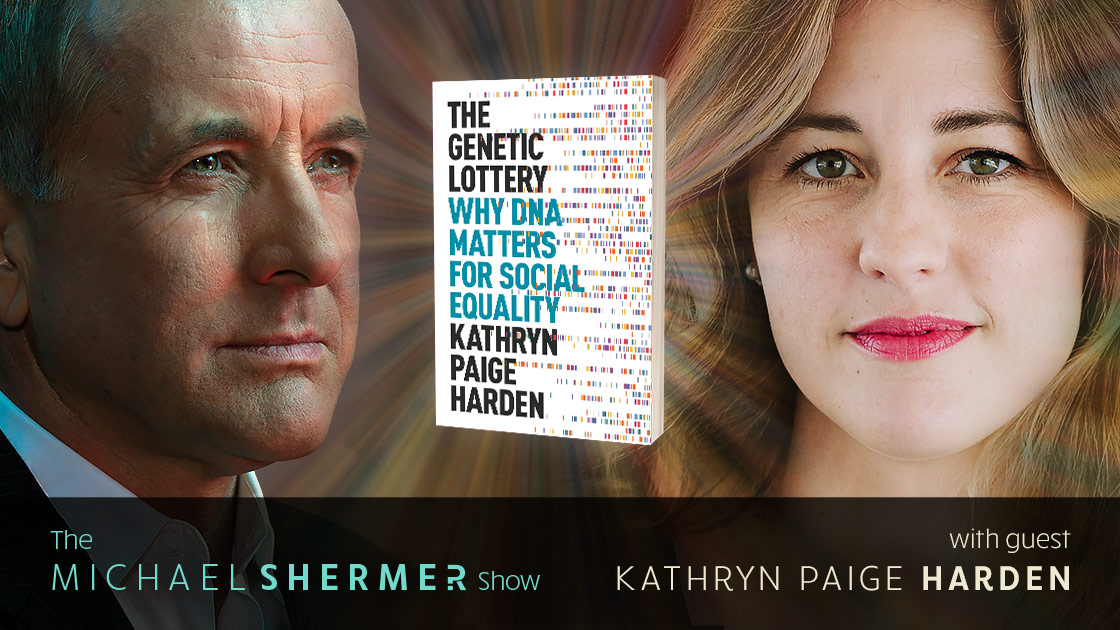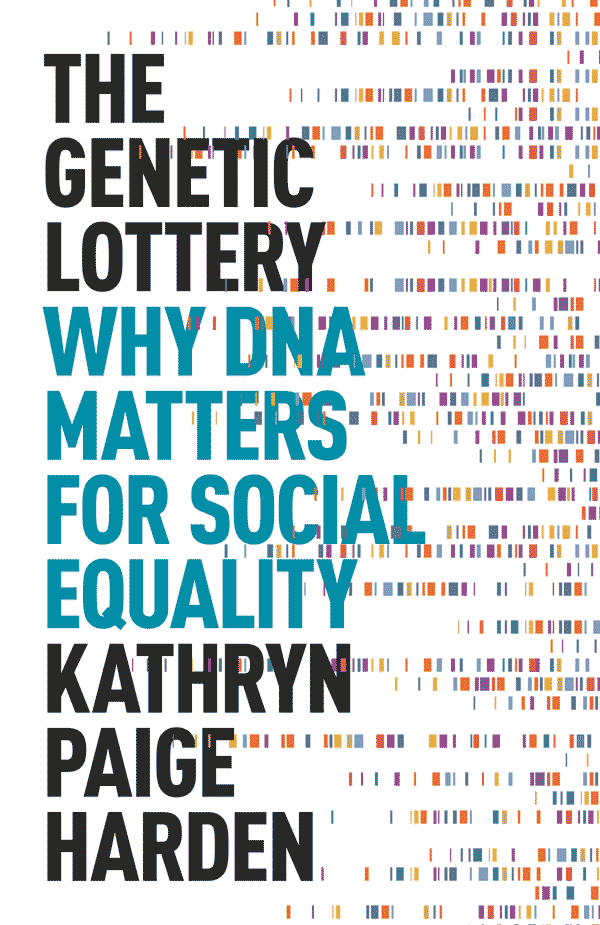In recent years, scientists like Kathryn Paige Harden have shown that DNA makes us different, in our personalities and in our health — and in ways that matter for educational and economic success in our current society.
In The Genetic Lottery, Harden introduces readers to the latest genetic science, dismantling dangerous ideas about racial superiority and challenging us to grapple with what equality really means in a world where people are born different. Weaving together personal stories with scientific evidence, Harden shows why our refusal to recognize the power of DNA perpetuates the myth of meritocracy, and argues that we must acknowledge the role of genetic luck if we are ever to create a fair society.
Reclaiming genetic science from the legacy of eugenics, this groundbreaking book offers a bold new vision of society where everyone thrives, regardless of how one fares in the genetic lottery.
Kathryn Paige Harden is professor of clinical psychology at the University of Texas at Austin, where she is Director of the Developmental Behavior Genetics Lab and codirector of the Texas Twin Project. She lives in Austin. Twitter @kph3k
Shermer and Harden discuss:
- Harden: “You only have one life to live, but if you rewound the tape and started anew from the exact same genetic and environmental starting point, how differently could your life go?”
- Harden applies this to her own life (her personal life journey raised by Conservative Christian parents),
- why she, as a liberal, embraces behavior genetics,
- cognitive creationism and the blank slate/behaviorism. The slate can’t be blank because the environment has to operate on something, in this case neurons that control behavior that are built of proteins that are designed by genes.
- How did behavior genetics (and evolutionary psychology) become so political?
-
Charles Murray and The Bell Curve
- Differences in I.Q. scores are heritable, racial differences in I.Q. scores exist, therefore the cause of racial differences in I.Q. are heritable.
-
“The Search for a Psychometric Left” (Eric Turkheimer):
“a psychometric left would recognize that human ability, individual differences in human ability, measures of human ability, and genetic influences on human ability are all real but profoundly complex, too complex for the imposition of biogenetic or political schemata. It would assert that the most important difference between the races is racism, with its origins in the horrific institution of slavery only a very few generations ago. Opposition to determinism, reductionism and racism, in their extreme or moderate forms, need not depend on blanket rejection of undeniable if easily misinterpreted facts like heritability. Indeed it had better not, because if it does the eventual victory of the psychometric right is assured.”
- Bag of seed corn analogy: The seed characteristics are highly heritable. Different environments produce different outcomes. The more uniformly beneficial the climate, the more pronounced the effects of genetic difference.
- What is behavior genetics?
-
Eric Turkheimer’s “Three Laws of Behavior Genetics and What They Mean”:
- All human behavioral traits are heritable.
- The effect of being raised in the same family is smaller than the effect of genes.
- A substantial portion of the variation in complex human behavioral traits is not accounted for by the effects of genes or families.
- What is a “polygenic score”?: a weighted sum of an individual’s relevant genetic variants,
- Genome-Wide Association Study (GWAS),
- Gattaca,
-
Harden on Head Start Programs and other educational reforms:
“Even if we eliminated all inequalities in educational outcomes between sexes, all inequalities by family socioeconomic status, all inequalities between different schools (which as you know are very confounded with inequalities by race), we’ve only eliminated a bit more than a quarter of the inequalities in educational outcomes.”
- science and morality,
- Do parents matter? Judith Rich Harris, The Nurture Assumption,
- epigenetics,
- luck, and how lives turn out,
- equality of opportunity vs. equality of outcomes (equal opportunity for inequalities),
- meritocracy,
- antiracism, BLM, equality,
- reparations,
- Harden (channeling John Rawls): “What sort of society would you want if you didn’t know what the outcome of the genetic lottery was going to be?”
- free will, volition, agency, and moral culpability.
If you enjoy the podcast, please show your support by making a $5 or $10 monthly donation.
This episode is sponsored by Brilliant:
This episode was released on October 9, 2021.











